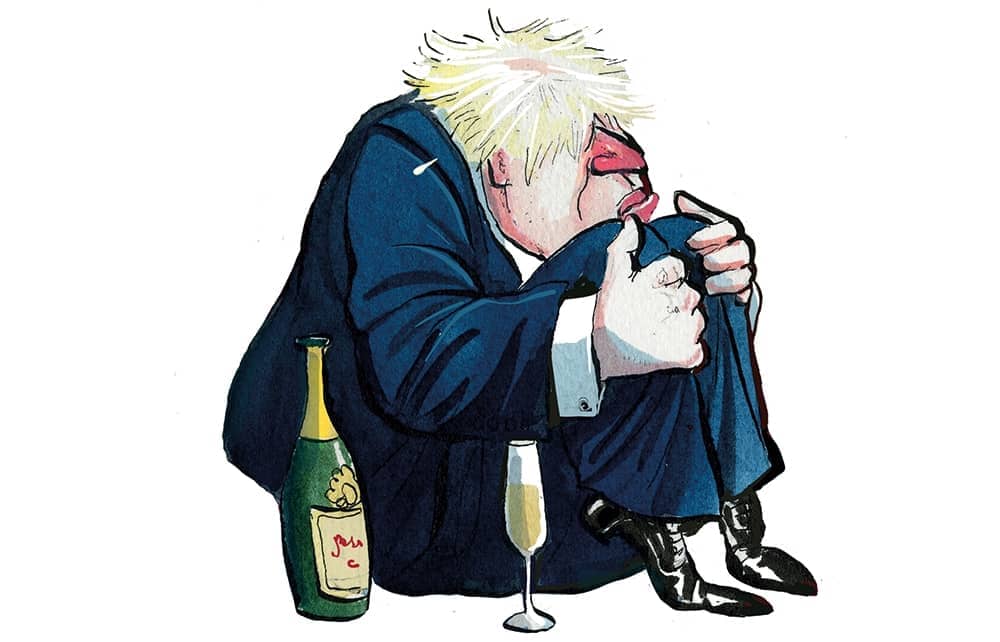What does Boris Johnson want to come out of the Covid Inquiry? At the end of his second day of evidence today, the former prime minister claimed that it was social care reform and an investigation into how Covid originated. He told the room that in case he didn’t give evidence again (which he may well have to do as the inquiry is split into modules), he wanted to make an important point:
I do think that when you come to the issues of health and social care are absolutely critical, and the government that I led was embarked on a big programme to try to bring them together. I think the fact that we had those delayed discharge patients was very, very difficult in the NHS. I hope that this Inquiry will give a kick to the powers that be to make sure that we really address that.
He then added that while the inquiry probably couldn’t look into this, ‘some sort of prod to the world to get the answer to the real origins of Covid, I think is going to be very, very important’. The chair Heather Hallett replied drily that ‘you set my terms of reference’.
Johnson did indeed set up the inquiry, but he and others who signed it off have grown frustrated with the direction it seems to be going in – and have also realised that it might not have the relatively comfortable outcome that they have previously briefed they were confident of getting.
These two important issues that Johnson highlighted have the benefit of not appearing to be very much about his premiership – even though he never actually produced the ‘oven ready’ social care reforms that he claimed he had when he first became Prime Minister. Indeed, the inquiry itself heard evidence from Simon Stevens that Johnson had asked him to stay on at the end of his time as chief executive of NHS England and help him reform social care. He had then declined when it became clear he would not be given the resources and money that were absolutely critical to this. Johnson was embroiled in arguments with Treasury ministers who felt the money could be better spent on existing provision. Eventually, Rishi Sunak, then the chancellor, said he would only agree to a cap on care costs if Johnson also backed an increase in National Insurance. This was, those close to the discussions at the time told me, only supposed to be a way of forcing the prime minister to back down, but he called his chancellor’s bluff. Either way, Johnson could have done with a kick to crack on with his social care reforms: but then so could every prime minister of the last 30 years. Sunak is answering questions on Monday.
He was questioned closely on the tiered approach in England, admitting eventually that he did fail, but it was still ‘worth a try’. He also said he had avoided engaging personally with the leaders of the devolved administrations over policy in part because of his worry about people who were ‘not necessarily my number one political fans feeling the need to chip paint off the government’ – i.e. Nicola Sturgeon. Instead, the way to ‘take the temperature down’ was to create ‘business-like practical meetings’ between the devolved administrations and Michael Gove, which he thought was ‘extremely effective’.
Johnson mostly managed to maintain his detached, magnanimous tone
Johnson mostly managed to maintain his detached, magnanimous tone throughout this evidence session, including the long run of questions from lawyers representing the many different groups at the Inquiry. There were a few testy exchanges: he lost his cool and paused heavily during questions from Hugo Keith KC, saying: ‘I knew from [his experience of being in intensive care] what an appalling disease this is. I had absolutely no doubt about that, from March onwards. To say that I didn’t care about the suffering that was being inflicted on the country is simply not right.’ Later, he disagreed with the lawyer representing the Scottish Covid Bereaved families, and interrupted her to point out ‘we’re all one country’.
He did, though, once again try to defend his handling of the lockdown parties in Downing Street, insisting that media coverage of the events had been a ‘travesty of the truth’. He also said that Helen MacNamara’s evidence where she claimed that there had only been one day when the rules had been followed in No. 10 was merely her pointing out the operational difficulties of holding meetings that fully complied and that the rules had been ‘written in a way so as to allow businesses to have flexibility’. He was later asked by the representative of bereaved families from Northern Ireland whether he could have done more to prevent events where there was drinking, and replied: ‘Given what I knew at the time about what was going on, the answer to that is no.’







Comments